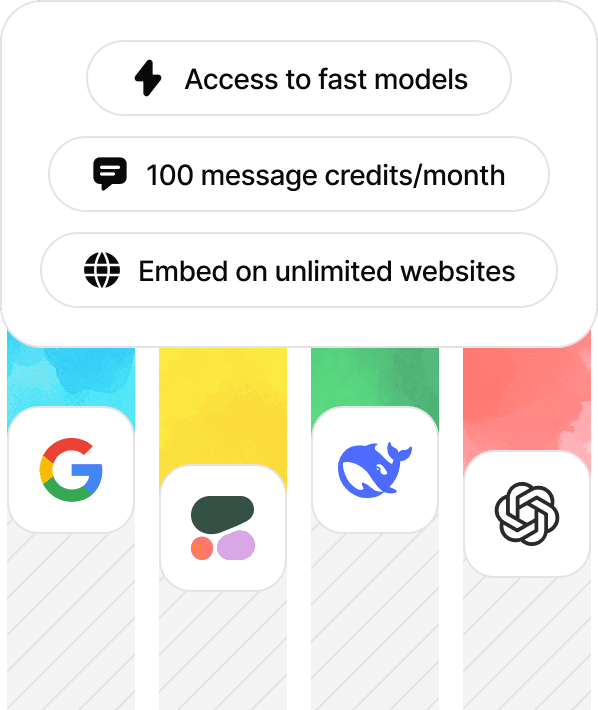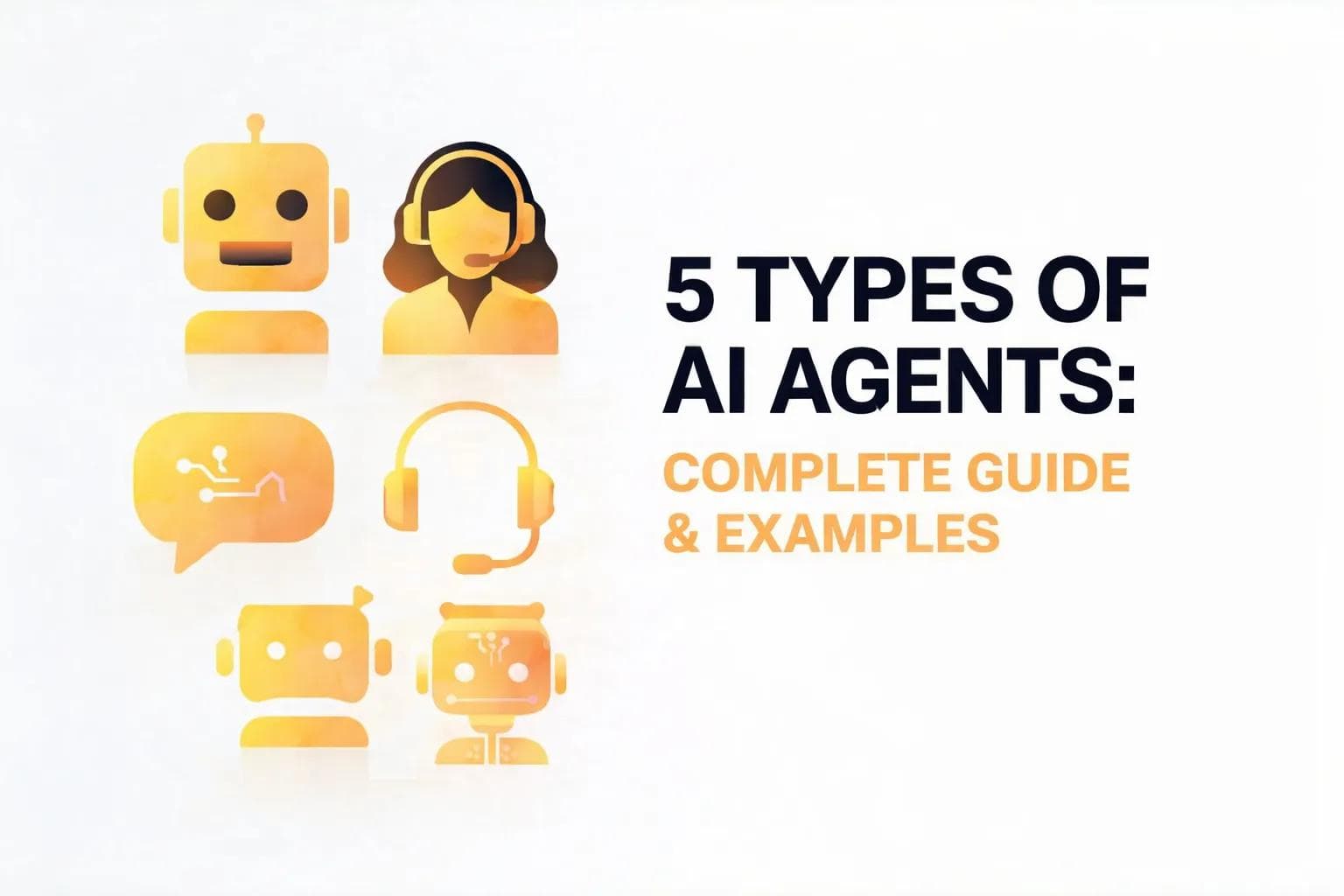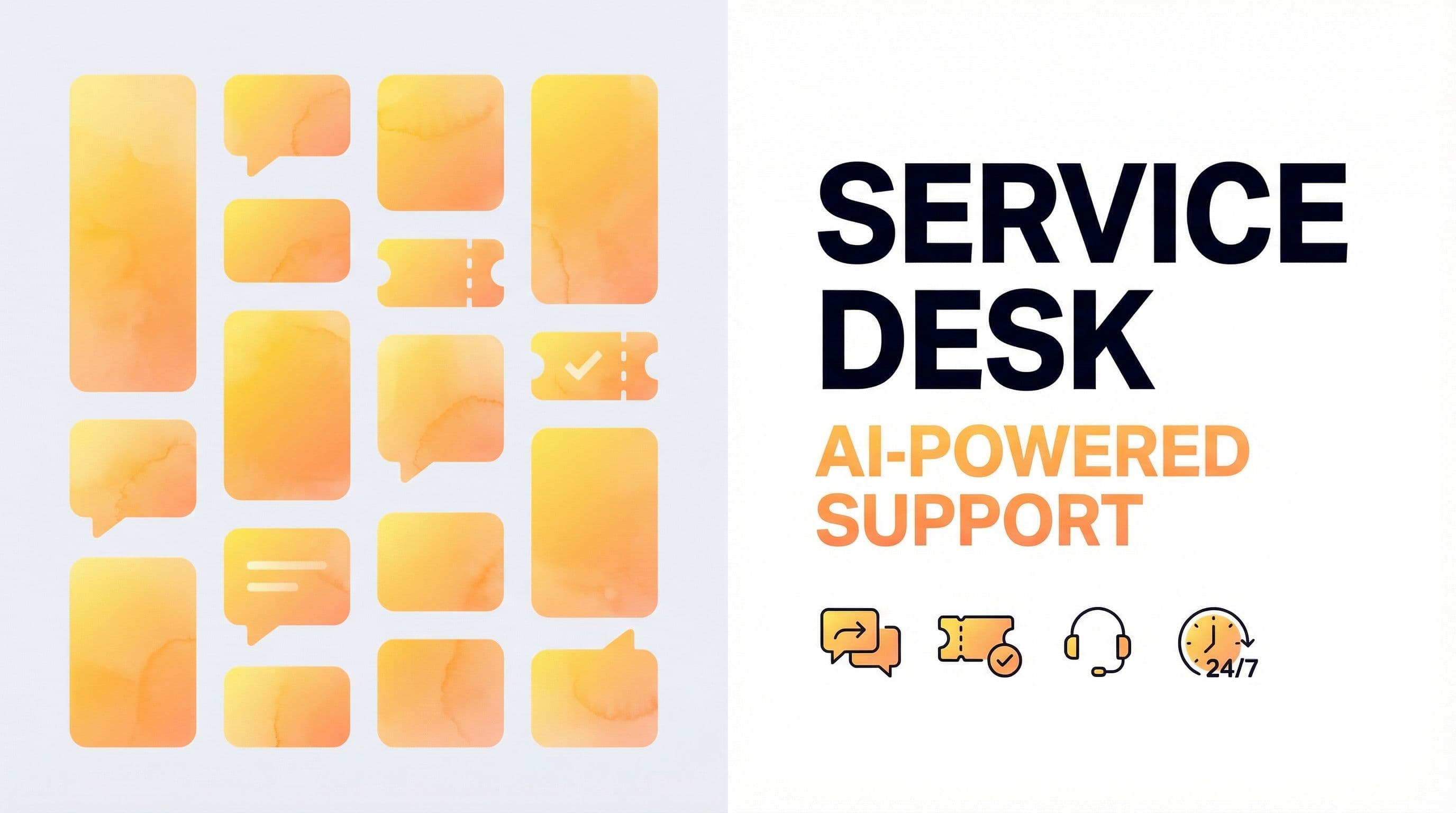How to Offer 24/7 Customer Support
Max T
May 16, 2025
7 min read

One of the most consistent search patterns tied to major brands is “24/7 support.”
Search “Apple” on Google, and among the top queries, you’ll find “Apple 24/7 support.” Same with Microsoft. “24/7 Microsoft support number” shows up again and again.
People aren’t just searching during working hours. They’re searching at midnight, early morning, weekends, holidays, whenever they run into a problem.
Customers don’t care what time it is. They just want help — now.
And yet, delivering 24/7 support is far from easy. Even massive enterprises struggle to keep up. Most of them rely on a global network of agents working in shifts across different time zones, sometimes hundreds, even thousands of people, just to maintain round-the-clock coverage.
But that kind of setup isn’t realistic for most businesses. The cost is just too high.
And truthfully, your options are pretty limited.
So here’s the real question; and I’ll answer it before you even ask: If you want to offer 24/7 support, how exactly do you do it?
Do you have the resources to hire dozens, maybe even hundreds, of customer support agents, depending on the scale and nature of your business?
Or do you find a smarter way to deliver round-the-clock availability without running up a massive wage bill?
That’s what this guide is here to break down.
Why Your Business Needs 24/7 Support
Most customers won’t say it out loud.But they expect you to be available — all the time.
If something breaks at 1:00 a.m., they want help. If they’re shopping during lunch or after work, they want questions answered now, not when your team is back online.
That expectation isn’t just for global companies anymore. It’s the new normal — even for small brands.
And here’s the thing:If your competitors offer 24/7 support and you don’t, you’re losing.Losing trust. Losing revenue. Losing customers.
It’s not a “nice to have.” It’s a signal.Availability tells customers you’re serious. You care. You’re reliable.Lack of support, especially when they need it most, leaves a bad taste.
Here’s why 24/7 support matters:
- Customer expectations have changed. Everyone’s online, all the time. People shop, explore, and run into issues outside 9–5. They expect brands to keep up.
- It gives you a competitive edge. Being available around the clock can instantly set you apart. It builds trust, improves retention, and reduces churn.
- It reduces frustration and builds loyalty. Nothing turns customers off faster than silence when they need help. Fast support = happy customers, which in turn means repeat business.
- It supports global growth. Even if you’re a small team, having global customer support that works across time zones opens the door to international customers.
- It prevents loss at critical moments. Someone with a payment issue at 11 p.m. isn’t waiting till morning. If you can’t help them right then, the sale is gone.
How to Offer 24/7 Support
If you're serious about providing round-the-clock support, you have a few core options. Each comes with its trade-offs — cost, complexity, and control.
Let’s walk through them.
1. Hiring Global Support Staff
This is the classic route: hire support agents in different time zones to cover all hours of the day.
It works — but it's expensive.
You’ll need to:
- Recruit talent across regions
- Manage schedules and overlapping shifts
- Train new hires constantly to ensure consistency
- Deal with HR, pay stubs, compliance, and infrastructure
It’s the most direct way to offer 24/7 support, but the cost stacks up fast — and scales with headcount.For many small or mid-sized businesses, it’s simply not realistic.
2. Outsourcing to a Support Agency
Outsourcing seems cheaper at first. You partner with an agency that provides agents in multiple time zones.
But here’s what you have to factor in:
- You're not always in control of how your brand is represented
- Training and QA can be tricky
- There are real concerns around privacy, trust, and data security
- You’re handing over sensitive conversations to third parties
In some industries — like finance, healthcare, or enterprise SaaS — that’s a risk you can’t afford to take.
And again, cost still scales with volume.You pay more as your customer base grows. Many businesses find that professional customer service outsourcing solutions can provide better cost predictability and quality control than traditional agency partnerships.
3. Using Automations and AI
Then there’s automation — smart systems that handle common questions without human input.
Think FAQs, shipping updates, order statuses, appointment bookings, and more. Now, combine that with AI-powered chatbots, and you get a support stack that can actually think, not just react.
AI can:
- Answer repetitive queries instantly
- Triage support issues before handing them off
- Learn from previous conversations
- Personalize responses with context and memory
This route is not only cheaper, it’s scalable, secure, and always-on.
You don’t pay per response. You don’t manage shifts. And you don’t sacrifice quality. Plus, with tools like AI chatbots and dedicated business phone numbers, you can offer 24/7 support without sacrificing professionalism or reach.
For modern businesses, especially those growing fast, this is quickly becoming the default approach.
Why Traditional 24/7 Support Is Expensive and Hard to Scale
Offering 24/7 support the traditional way sounds good in theory — but once you sit with the logistics, it becomes clear why most businesses can’t pull it off.
Staffing a support team that covers all hours of the day means shifts. It means weekends. Public holidays. Night hours.
That’s not just tough on employees — it’s tough on your payroll. You’re either hiring in-house across multiple time zones, or outsourcing to call centers. Either way, it stacks up fast.
Here’s what “traditional” usually means:
- Hiring enough agents to work in rotating shifts
- Maintaining coverage for nights, weekends, holidays
- Building systems for smooth handovers between shifts
- Keeping quality consistent across time zones
- Paying premiums for night work and overtime
- Managing burnout and turnover
Sounds intense? That’s because it is.
And truthfully, even big companies struggle with this.They can pour millions into support ops, yet still deal with long wait times and frustrated customers.
So if you're a smaller brand or a fast-growing startup?Trying to copy that model will drain your budget and energy faster than you think.
And then there’s scale.As your customer base grows, so does your volume of tickets.If your answer is to just keep hiring more agents… you’re walking into a bottleneck.
Support becomes a cost center that just keeps ballooning — and that’s not sustainable.
It’s not about effort.Most businesses want to help their customers at all hours.But with this model, the cost is just too high.
The tradeoffs are too heavy.
And honestly, the options are pretty limited.
So now the big question becomes:If you want to offer 24/7 support, how do you go about it?
Do you build a massive team?Do you outsource and hope it works?Or is there another way to do it better?
Why AI Customer support is the best option for 24/7 coverage
Whether you're running a lean startup or managing a mid-sized business, AI gives you the power to meet customer expectations without stretching your team thin.
Here’s why it works:
- It never sleeps. AI doesn’t need breaks, holidays, or handoffs. It operates 24/7 by design — perfect for businesses that want to be responsive at any hour, from any timezone.
- It handles volume without breaking. Whether 5 people or 5,000 people send a message at the same time, it responds instantly. No queues. No wait times. No “our team will get back to you shortly” responses.
- It automates the repetitive stuff. Most customer queries are predictable: shipping status, return policies, troubleshooting, scheduling. AI can handle all of these — without involving a human agent.
- It reduces your ticket load. The more your AI handles upfront, the fewer tickets your team has to touch. That means your human support is reserved for complex, high-value cases — not FAQs.
- It gets smarter over time. The more it interacts with your customers, the better it understands them. Feed it your product documents, knowledge base, past chats — it’ll learn from them and serve answers that fit your voice and brand.
- It’s scalable without the cost. Unlike hiring, there’s no per-agent cost with AI. Whether you're answering 20 queries a day or 2,000, your costs stay predictable.
Get Started with 24/7 Support Using Chatbase
If you're ready to offer 24/7 support without blowing up your budget or team size, Chatbase makes it almost too easy.
Here’s how it works.
You train a Chatbase AI agent using your own company data — docs, URLs, FAQs, policies, workflows, anything. In just five minutes, your custom chatbot knows how your business runs.
From there, you can deploy it instantly as a frontline support agent.
But this isn’t just a chatbot that replies.
It takes action.
It can:
- Look up order statuses
- Handle refunds
- Schedule appointments
- Check inventory
- Trigger internal workflows
- And more
It’s like having a smart support rep who never sleeps — and never gets overwhelmed.
Now, let’s be clear: AI doesn’t fully replace human agents. But Chatbase handles 70–80% of your routine support queries on autopilot.
And in some cases? It can resolve issues even faster than your best human rep.
Share this article:







